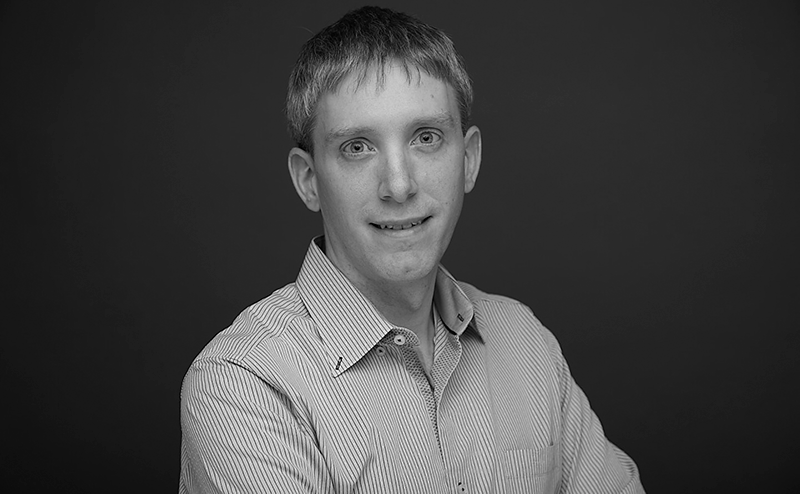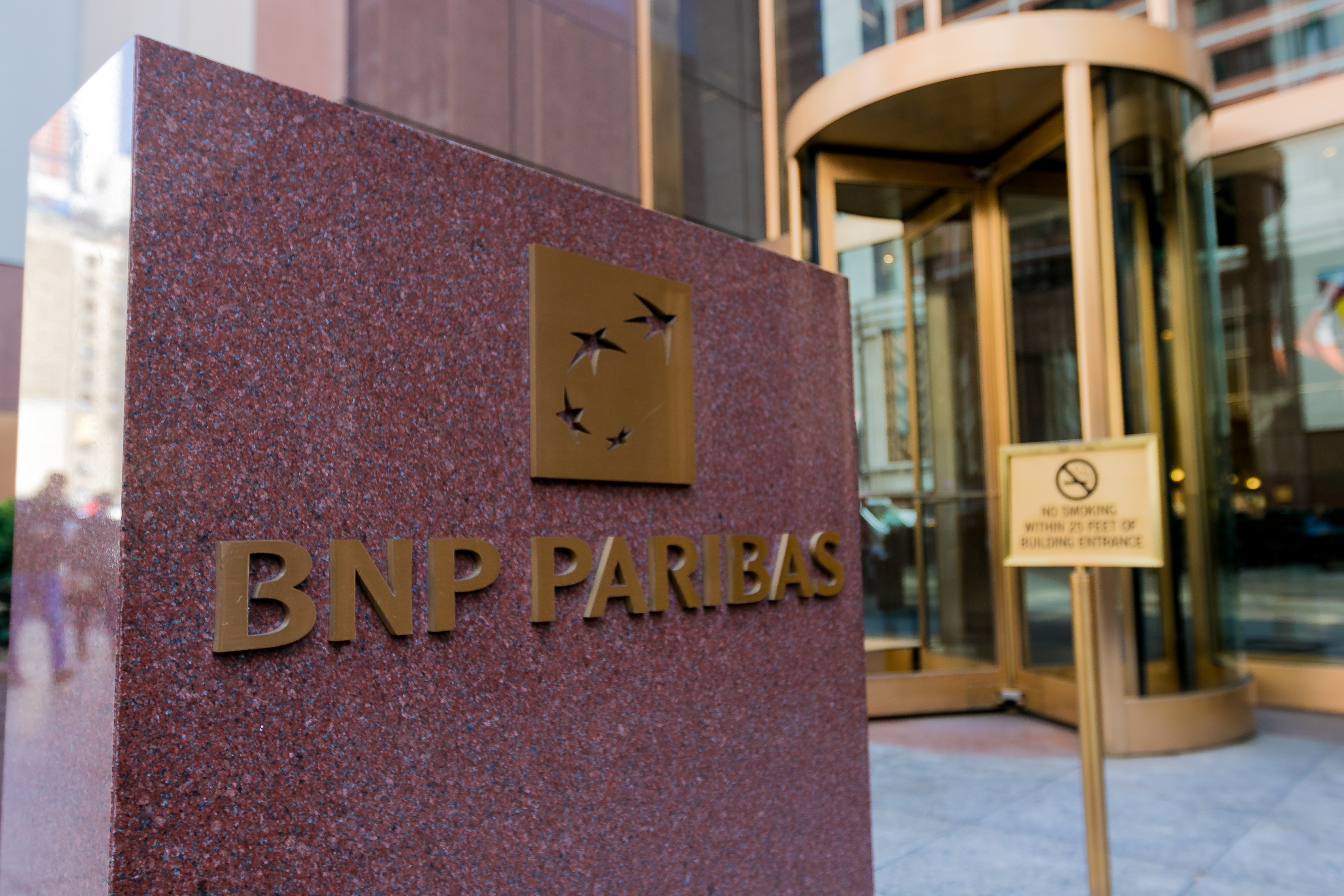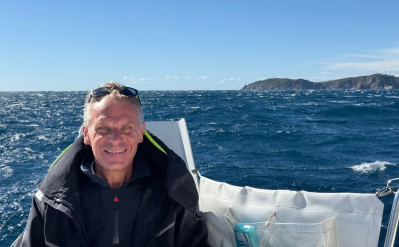News

Thierry Schilt (SKEMA 2004): a successful expatriation in finance in New York
After studying at SKEMA Business School and working in finance in France for ten years or so, Thierry Schilt decided to move to the United States. Now an internal auditor for BNP Paribas in New York, he looks back on his academic experience, the key stages of his career and the challenges and successes of his expatriation.
What was your academic background and why did you choose to join SKEMA Business School?
After a science baccalaureate in Strasbourg, I did two years of preparatory classes for business schools.
I then joined SKEMA Business School's Grande École programme, which I followed with a Master's in Management, specialising in corporate finance, at the Sophia Antipolis campus, near Nice.
I really liked the fact that this campus had its own trading room, as this was quite rare at the time. The school also offered the chance of doing a year's work-study programme and preparing for double degrees abroad. Its international scope was one of the reasons I chose it.
What aspects of your training made the biggest impression on you?
What I remember most of all was meeting other students, and the wide range of nationalities and languages. Twenty years on, I'm still in contact with several classmates!
Another thing I really liked was that 80% of my classes were in English. This greatly improved my language skills, and that's been very useful in my career.
And I really enjoyed my final year of work-study experience, during which I worked two days a week in the accounts department at the Nice Chamber of Commerce and Industry.
This enabled me to get a foot in the door of the working world very quickly, and put what I had learned in class into practice. I really learned a lot during this year. Once I entered the job market, this experience was highly valued by employers as well.
What were the main stages of your career path after this?
After this work-study year, I worked for the Caisse d'Épargne Group as a risk manager for seven years, then as an inspector and internal audit project leader for six years.
In 2018, after meeting my wife on a trip to New York, I decided to resign and started immigration procedures for the US, my wife being American. Once I got to New York, I had to wait about 6 months to get a work permit.
Immediately after that, I accepted an offer to work in a Japanese bank, again in internal auditing.
I was then approached by the BNP Group, and am now working as an internal auditor in the capital market for the general inspectorate of BNP Paribas, the team that audits all market activities for North America.
What is your current professional activity?
My mission focuses primarily on auditing Sales teams and traders, and on all the products the bank might offer, like credit, equities, currencies and commodities. I also audit the associated administrative functions in the back office – operations teams, risk monitoring teams, and so on.
The auditor's job involves a wide variety of tasks, and involves a lot of teamwork. It is also a job that means a lot of contact with the company's top management, which can be a two-edged sword: if you do your job badly, you won't last long, but if you do it well, it can open doors to other positions.
It's a job where you can contribute to the company's improvement. For example, you are responsible for checking that the relevant rules and procedures are being followed. We also carry out an annual audit plan and, with the teams, pinpoint what is working well or, on the contrary, what isn't, and then we draw up recommendations on areas for improvement and potential risks to be anticipated.

What have been your main challenges and sources of satisfaction in your expatriation to the US, personally and professionally?
I think my expatriation has been a success mainly because of my good command of the language, my academic background and my varied professional experience. In New York, my financial skills were easily transferable, as the city is a world-famous financial hub.
However, I have encountered some challenges.
For example, the recruitment process here is very different from how it is in France. In the US, CVs are checked for authenticity and references, and must not contain any source of potential discrimination like your photo or age.
Another big difference that struck me is that there is no real job security here. In France, we look at the diploma, and require qualifications in higher education from such and such a school – whereas here, employers are ready to take many more risks when hiring. On the other hand, the notice period before leaving is only two weeks, not three or even six months, as in France. So the job market is much more fluid, and people change jobs more often than in France.
To find a job in the US, networking is essential. Before going there, I contacted people who worked in the finance sector in New York and attended all the events organised by SKEMA Alumni in the city. Thanks to this afterwork networking, I was able to meet a lot of the alumni, students and French companies based here. I could outline my project, send out my CV, exchange business cards and so on.
Another challenge was the difference in the cost of living. Compared with the French provincial cities where I used to work, everything is about twice or even 2.5 times as expensive in terms of groceries, health costs, etc. You shouldn't get too excited when you see that your salary is higher than in France, because life here definitely costs a lot more.
On the other hand, I was expecting a culture shock when I arrived, but in fact it was easy to adapt quickly because the city is very cosmopolitan. In New York, almost 200 nationalities are represented, and 50% of people do not speak English at home!
In terms of sources of satisfaction, I must admit that I really like the fact that I no longer have to wear a tie in a corporate environment! Everything is more relaxed here.
I enjoy life here every day, and I really feel I made the right choice. So I see it as a successful gamble!
What do you think are the qualities needed to work in finance?
As I said, language is a very important aspect. The working language in finance is English, whether you work in a bank in Paris, Singapore or Frankfurt.
You also have to be interested in the economy and the financial markets, keep abreast of regulatory and technological developments and know how the different financial products work.
There is a huge range of jobs in finance, with subtleties specific to each one, but overall, you need to know that the workload is always pretty heavy and that you'll have long working hours.
In an auditor's work, data analysis tools and proficiency in certain programming languages are a great asset. These are highly sought-after skills.
What advice would you give young graduates who want to build a career in finance, especially an international one?
I think expatriation is an excellent choice, and that they should be willing to move out of their comfort zone. First of all, I would advise them to focus on learning foreign languages, especially English, which is a must.
They should really take advantage of the schemes available, like the Volunteer for International Experience (VIE) scheme, which enables people to carry out paid assignments in French companies abroad. It's quite competitive, but it means gaining initial professional experience abroad and being given real responsibilities.
Another option is to join a large group in France. After one or two years' seniority, they can apply internally for international positions. The advantage is that they will be assisted by their employer in all the immigration procedures. I see a lot of alumni who have taken this route: it's really open to everyone.
I also think it's important to use the right networks, and contact former students from your school. Having done it myself, I can say that alumni are always willing to help!
There are also specific "Summer Analyst" programmes in finance, where young graduates do a summer internship in an investment bank abroad. However, the recruitment process is quite long, so it means applying well in advance. These internships can lead to a job, and it is then possible to move up the ladder very quickly. This is a really excellent way to enter the world of finance and build an international career.
Contact: Thierry Schilt, Capital Markets Internal Auditor - Vice President at BNP Paribas
Interview by lepetitjournal.com for SKEMA Alumni




